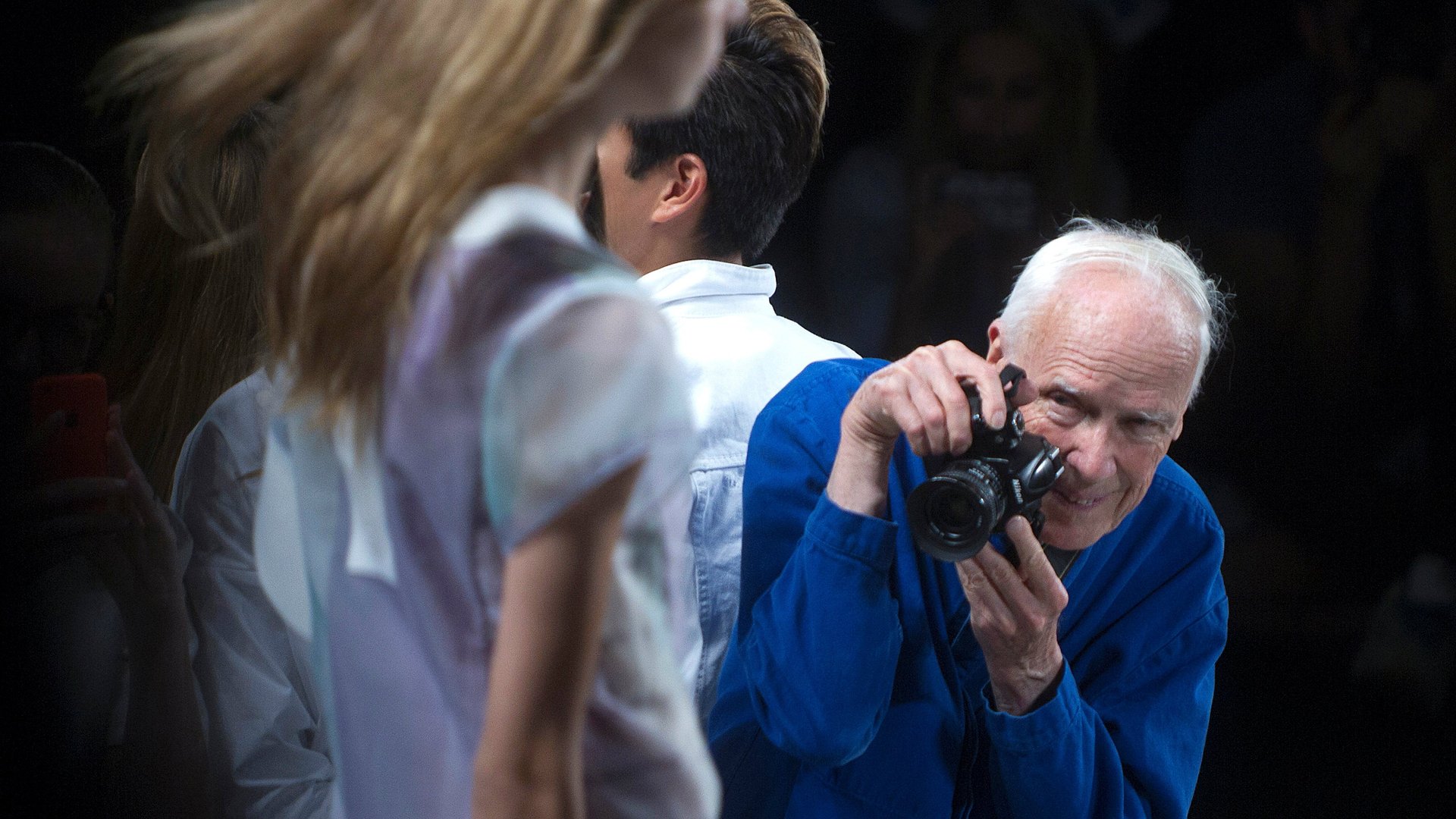What legendary fashion photographer Bill Cunningham taught us about labor economics
When legendary New York Times fashion photographer Bill Cunningham died on Saturday (June 25), fans took to Twitter to pay their respects. The sentiments reveal that he’s equally admired for the way he conducted his work as he is for his enterprising street photography.


When legendary New York Times fashion photographer Bill Cunningham died on Saturday (June 25), fans took to Twitter to pay their respects. The sentiments reveal that he’s equally admired for the way he conducted his work as he is for his enterprising street photography.
Even into his 80s, Cunningham cycled around the city in a blue French worker’s jacket, taking photos of whatever caught his eye. He photographed his share of galas, but would never accept so much as a glass of water from his hosts. Vanity Fair tech correspondent Nick Bilton, who previously worked with Cunningham at the Times, tweeted:
The Times’ obituary describes Cunningham as fiercely independent, to the point where he would rip up checks from employers if he felt that accepting the checks compromised his freedom. Many circulated one of Cunningham’s most popular quotes: “Money’s the cheapest thing. Liberty and freedom is the most expensive.” He declined to accept a full-time position from the Times for two decades until a 1994 cycling accident. “It was a matter of health insurance,” he once told the Times.
Through his personal and professional choices, Cunningham revealed how the US model for employment is inherently flawed. When employers are the sources of important protections (beyond a paycheck) required for a good life—namely, health insurance—then the labor system will always skew in favor of employers.
Liquid Talent co-founder Alex Abelin, a former Google (Alphabet) employee who is an outspoken advocate of decoupling benefits and perks from employers, once put it this way: “When did we as a society agree that the safety nets and structures of our health should be given by a corporation? It’s a dangerous agreement that we have where companies take care of us and that’s how we live our life.”
That’s certainly how Cunningham saw it. In addition to cycling around town, he slept on a cot in a minimalist apartment. Yet that lifestyle and worldview is what gave more power to his work. He is considered one of the New York’s most important cultural anthropologists, as discussed in the film Bill Cunningham New York.
The paradox of innovation, especially at large companies, is that as freedom decreases, so does creativity. In order to cultivate more Cunninghams, workers need more freedoms and freelancers need more protections. Truly enterprising work often comes from those who are willing to forgo security at all costs—but it doesn’t have to be that way.